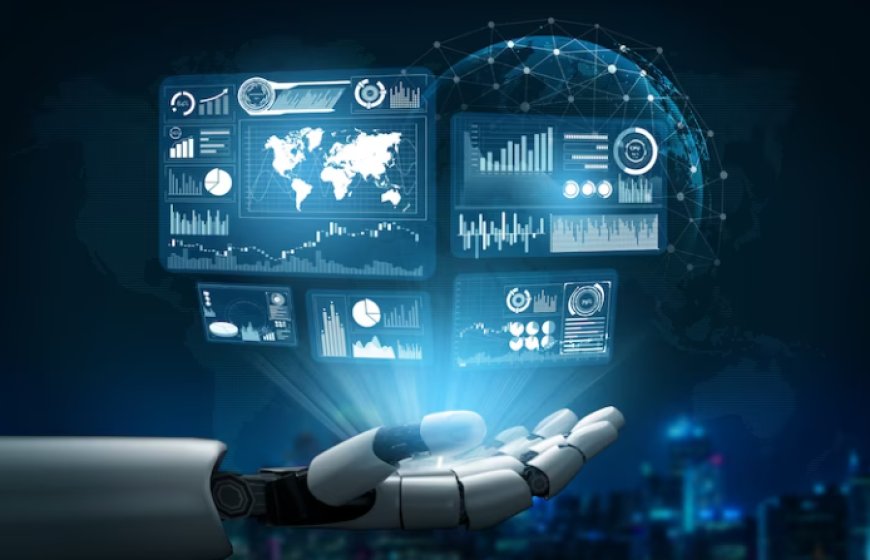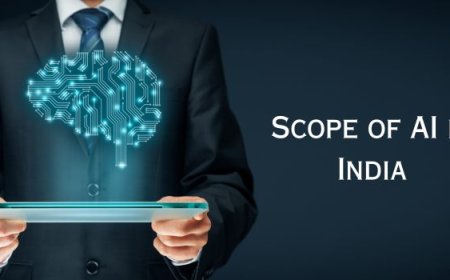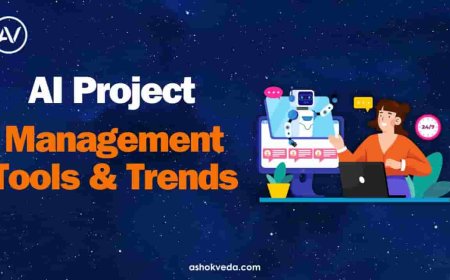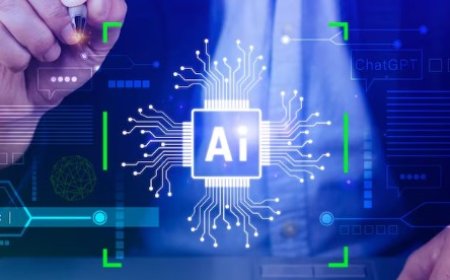AI and Data Science: A Dynamic Duo Revolutionizing the World
Explore AI, data science, technology, innovation, machine learning, algorithms, analytics, applications, trends, solutions, and Enhance capabilities.

In the realm of technological advancements, the powerful combination of artificial intelligence (AI) and data science has emerged, reshaping various industries and sectors. With the exponential growth of data and the increasing complexity of real-world problems, this fusion has paved the way for groundbreaking innovations, opening up a new era of possibilities and transformations. Not only has it redefined how we process information, but it has also revolutionized our perception and interaction with the world around us.
This revolution has not been without its challenges. As AI and data science continue to advance, ethical concerns, data privacy issues, and responsible implementation have become crucial. The potential misuse of data, biased algorithms, and the lack of transparency have raised important questions about the ethical implications of this technological convergence. Moreover, the rapid pace of development has presented challenges in terms of upskilling the workforce and adapting to the evolving demands of this technology-driven era.
Businesses and organizations can leverage the partnership between AI and data science to gain a competitive edge while upholding ethical standards and maintaining data privacy. By harnessing the power of AI-driven analytics, businesses can extract actionable insights from large data sets, enabling them to make informed decisions and optimize their operations. AI-powered personalization and recommendation systems can enhance customer experiences, leading to increased customer satisfaction and loyalty. Additionally, leveraging AI for predictive analytics and trend forecasting can help businesses anticipate market shifts, identify emerging opportunities, and stay ahead of the competition.
Key Considerations for Ethical Deployment of AI and Data Science in Business
Prioritizing Data Privacy and Ethical Considerations: Businesses must prioritize data privacy and ethical considerations to build trust with their customers and stakeholders, fostering long-term relationships based on transparency and integrity.
Implementing Robust Data Security Measures: Implementing robust data security measures is crucial to ensuring the protection of sensitive information. This includes employing encryption, access controls, and data anonymization techniques to safeguard data from unauthorized access or breaches.
Compliance with Regulatory Standards: Adhering to regulatory standards is essential for businesses to ensure that their AI and data science practices are in line with legal requirements. Compliance demonstrates a commitment to ethical practices and responsible deployment of technology.
Transparency in AI-Driven Decision-Making: Providing transparency in AI-driven decision-making processes is vital for ensuring accountability and trust. Businesses should strive to make their AI algorithms and decision-making processes transparent and explainable to stakeholders and customers.
Investing in Upskilling of the Workforce: Businesses should invest in the upskilling of their workforce to ensure that employees are equipped with the necessary knowledge and skills to effectively utilize AI and data science technologies. This empowers employees to adapt to the evolving demands of the digital landscape and contribute to the responsible deployment of these technologies.
Promoting a Culture of Continuous Learning: Encouraging a culture of continuous learning within the organization fosters innovation and ethical responsibility. Employees should be encouraged to stay updated with the latest advancements in AI and data science, promoting a dynamic and adaptive work environment.
Harnessing the Full Potential of AI and Data Science: By fostering a culture of innovation and ethical responsibility, businesses can harness the full potential of AI and data science to drive sustainable growth and gain a competitive advantage in their respective industries. This can be achieved while upholding ethical standards and maintaining data privacy, thereby ensuring the responsible deployment of these technologies.
How Can AI and Data Science Work Together?
To address this complication and make sense of the data deluge, AI and data science collaborate in several ways. Let's delve into the following aspects:
1. Data Collection and Preprocessing:
The foundation of any data-driven project lies in collecting and preparing data. AI can automate data collection processes, while data science techniques can clean and preprocess the data, making it ready for analysis. This collaboration streamlines the initial stages of any data project.
2. Predictive Analytics:
AI-driven predictive analytics can forecast future trends, identify potential issues, and make recommendations. Data science models are essential for training AI algorithms to perform predictive tasks accurately. They provide the necessary historical data and features required for AI models to make informed predictions.
3. Natural Language Processing (NLP):
NLP is a subfield of AI that deals with the interaction between computers and human language. It is widely used for sentiment analysis, chatbots, and language translation. Data science plays a role in training NLP models using labeled datasets, ensuring accuracy and relevance.
4. Machine Learning and Data Mining:
Machine learning is a subset of AI that allows systems to learn and improve from experience. Data science is instrumental in building machine learning models by selecting relevant features and optimizing algorithms. This synergy is particularly powerful in applications like recommendation systems and fraud detection.
5. Computer Vision:
Computer vision, another AI subfield, enables computers to interpret and make sense of visual information from the world. Data science provides the annotated datasets necessary for training computer vision models. This collaboration is crucial in fields like autonomous vehicles and medical image analysis.
What Advantages Do They Offer Businesses?
The Impact of AI and Data Science Synergy:
The synergy between AI and data science has led to significant advancements and transformative impacts in various industries. Let's explore some of the remarkable ways in which this collaboration is revolutionizing the world:
1. Healthcare:
In the healthcare sector, AI and data science are being used to improve patient care, diagnosis, and drug development. Machine learning models can analyze medical records and images to identify patterns, while data science ensures data accuracy and quality. This combination has led to faster and more accurate diagnoses, personalized treatment plans, and the discovery of new drug candidates.
2. Finance:
In finance, AI and data science are revolutionizing risk assessment, fraud detection, and investment strategies. Machine learning algorithms can analyze market trends and financial data to make real-time investment decisions. Data science ensures the integrity and cleanliness of financial data, making it possible for AI systems to deliver reliable results.
3. Retail:
The retail industry benefits from AI-driven recommendation systems that suggest products based on a customer's past behavior and preferences. Data science is essential for processing and analyzing customer data to train recommendation algorithms. This results in increased sales, improved customer satisfaction, and more efficient inventory management.
4. Autonomous Vehicles:
AI and data science play a crucial role in making autonomous vehicles a reality. Computer vision, powered by AI, enables vehicles to recognize and respond to their surroundings, while data science ensures the quality of training data. This synergy is paving the way for safer and more efficient transportation.
5. Environmental Conservation:
AI and data science are used to monitor and protect the environment. For instance, remote sensing data combined with AI can track deforestation, wildlife migration, and climate change. Data science is essential for processing and interpreting the vast amount of environmental data that AI relies on for decision-making.
6. Customer Service:
AI-driven chatbots and virtual assistants are becoming increasingly sophisticated in providing customer support. Natural Language Processing (NLP), a field that relies on data science for training language models, allows these AI systems to understand and respond to customer inquiries more effectively.
7. Manufacturing and Industry 4.0:
The manufacturing sector benefits from AI-powered predictive maintenance, which reduces downtime and improves efficiency. Data science ensures that the historical data used to train these models is accurate and representative of the manufacturing process.
8. Education:
In education, AI is used for personalized learning, analyzing student performance, and improving curriculum design. Data science is vital for collecting and managing educational data, enabling AI systems to make data-driven recommendations and enhancements.
Challenges and Ethical Considerations:
While AI and data science are driving progress, they also present challenges and ethical considerations. Ensuring data privacy, addressing bias in AI algorithms, and maintaining transparency in decision-making are essential. Data science plays a crucial role in identifying and mitigating biases in data and algorithms, while AI is used to develop fair and transparent AI systems.
To summarise, the incredible partnership between AI and data science is reshaping our world in ways we never imagined. Together, they are driving innovation, propelling industries forward, and tackling the most complex challenges of our time. From healthcare to finance, retail, and beyond, the impact of AI and data science is profound and reaches far and wide. As these fields continue to evolve, it's important to keep in mind the ethical considerations and challenges they present. By embracing the potential of AI and data science while maintaining ethical standards, we can ensure a brighter future that is driven by data. The revolution is underway, and the possibilities are endless. It's truly exciting to witness this dynamic duo leading the way in transforming industries and improving lives.





































